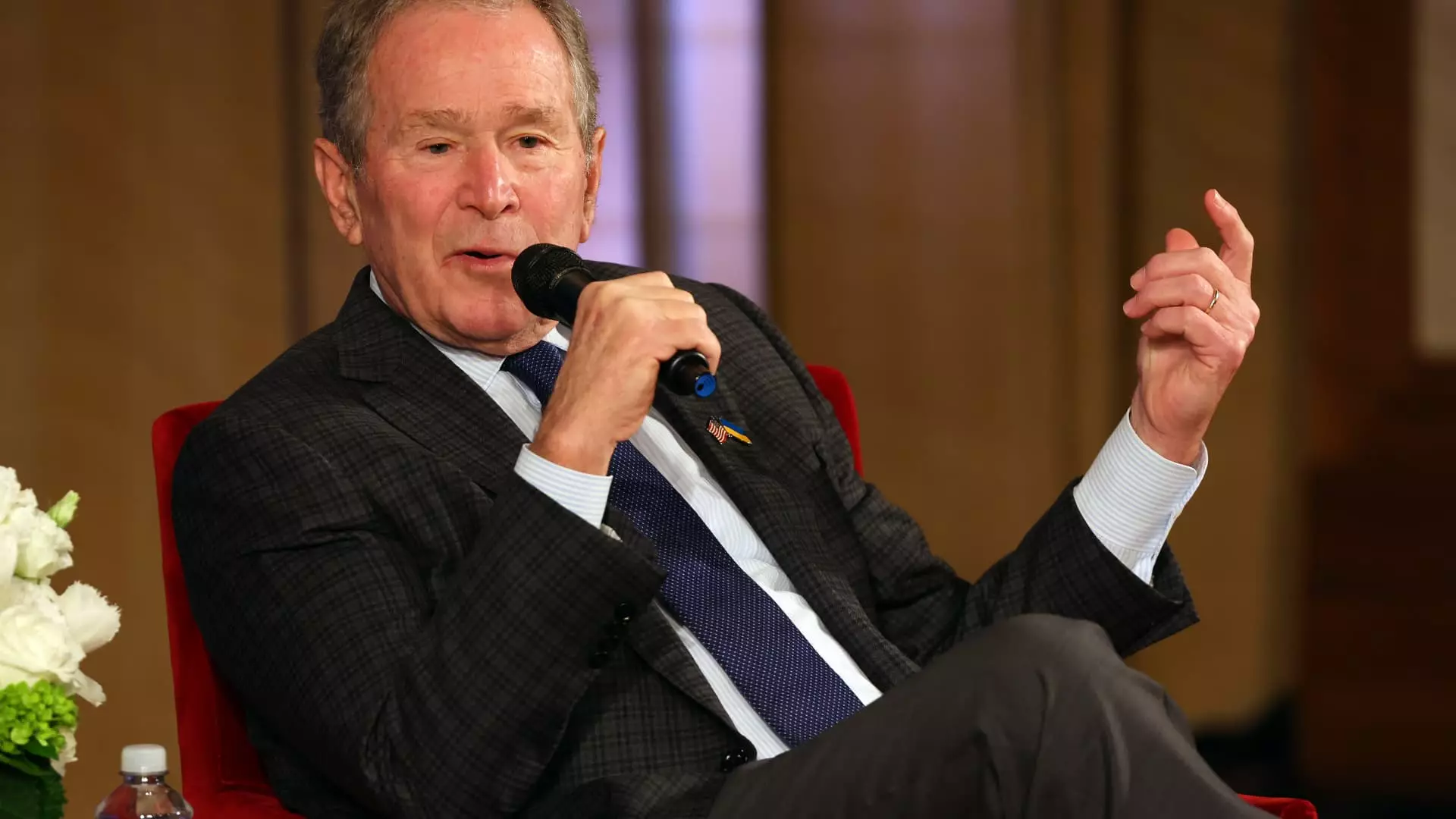As the 2024 presidential election cycle heats up, the absence of a high-profile endorsement from former President George W. Bush raises significant questions about loyalty, party alignment, and the changing dynamics within the Republican Party. Bush, who has largely stepped back from active political engagement, recently confirmed that he would not endorse any candidate, including the presumptive nominee from his own party, Donald Trump. This decision reflects not just personal sentiments, but also a broader unease among some Republicans regarding the direction of their party.
Bush’s office made it clear that he has retreated from the world of political endorsements, indicating a desire to maintain distance from the rancor that defines contemporary political discourse. This marks a distinct departure from his previous actions in 2008 and 2012, when he endorsed John McCain and Mitt Romney, respectively. The strategic choice to abstain in 2024 highlights the fragmentation within the GOP and signals a potential rift between establishment Republicans and Trump’s loyal base. The message sent by Bush’s withdrawal is manifold: it illustrates a growing discontent within the Republican ranks and could also showcase a shift toward more independent, moderate perspectives among some of its key figures.
The political landscape becomes even more complex when considering the decisions of former Vice President Dick Cheney and his daughter, Liz Cheney. By endorsing Vice President Kamala Harris, Dick Cheney has publicly rebuffed the candidate that many in the Republican Party continue to support. His statement that “no individual has been a greater threat to our republic than Donald Trump” is a stark indictment of the former president and indicates a clear divergence from the party’s hardline elements. Liz Cheney, having faced significant backlash for her criticisms of Trump during her Congressional tenure, continues to align against the former president, further cementing her stance as a moderate Republican. Their endorsements of Harris not only challenge traditional party lines but may also inspire other Republicans to reevaluate their alliances and priorities.
The response from the Harris campaign to these endorsements has been strikingly positive, suggesting a coalition-building strategy aimed at uniting a wider array of political voices. In her remarks regarding the Cheneys’ support, Harris emphasized commonalities that transcend party divisions, which could reflect a strategic approach to garner support from disillusioned Republicans. This outreach to moderates signals a potential shift in electoral dynamics, indicating that the Biden administration is keen to capitalize on the dissatisfaction emanating from within the GOP.
Notably, the trend of Republicans distancing themselves from Trump has been burgeoning. The coalition of over 200 former staffers from previous Republican administrations who endorsed Harris reflects a broader concern among seasoned Republicans about safeguarding democratic processes in the country. This proclivity for bipartisanship among a faction of Republicans speaks volumes about their fears regarding Trump’s influence and the future trajectory of the GOP. It raises crucial questions about loyalty and accountability in modern political affiliations.
As the election cycle progresses, the decisions of figures like George W. Bush, Dick Cheney, and Liz Cheney might redefine Republican identity. With an evident schism forming between traditional conservative values and Trump’s brand of populism, the implications of these endorsements, or lack thereof, could ripple throughout the party for years to come. The upcoming election presents an opportunity not only for Trump and his adherents but also for Republicans yearning for a return to more moderate principles. The evolution of the Republican Party in the face of these endorsements will undoubtedly be a focal point, potentially shaping the political landscape in ways yet to be fully understood.
This unfolding drama underscores the importance of allegiance, ideology, and the quest for a sustainable political identity in an era marked by deep divisions. The challenge for the GOP will be to navigate these internal conflicts while finding a way to unite their base, especially as the 2024 election approaches.


Leave a Reply